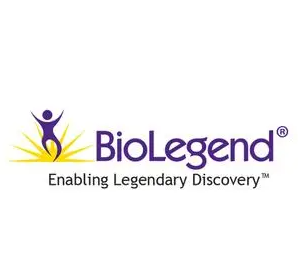Product Details
- Verified Reactivity
- Mouse
- Antibody Type
- Monoclonal
- Host Species
- Rat
- Immunogen
- Recombinant mouse CCL28
- Formulation
- Phosphate-buffered solution, pH 7.2, containing 0.09% sodium azide.
- Preparation
- The antibody was purified by affinity chromatography.
- Concentration
- 0.5 mg/ml
- Storage & Handling
- The antibody solution should be stored undiluted between 2°C and 8°C.
- Application
-
ELISA Capture - Quality tested
- Recommended Usage
Each lot of this antibody is quality control tested by ELISA assay. For ELISA capture applications, a concentration range of 1-4 ?g/mL is recommended. To obtain a linear standard curve, serial dilutions of mouse CCL28 recombinant protein ranging from 1000 to 15.6 pg/mL are recommended for each ELISA plate. It is recommended that the reagent be titrated for optimal performance for each application.
- Application Notes
ELISA Capture: The purified L019H7 antibody is useful as the capture antibody in a sandwich ELISA assay, when used in conjunction with the biotinylated Poly5242 antibody (Cat. No. 524203) as the detection antibody.
- Product Citations
-
- RRID
- AB_2563259 (BioLegend Cat. No. 525802)
Antigen Details
- Structure
- Chemokine
- Distribution
-
Mucosal epithelial cells
- Function
- CCL28 chemoattracts resting CD4, CD8, and IgA antibody secreting cells. It plays a role in extravasation of IgA ASC in the small intestine, colon, lactating mammary glands, and has antimicrobial activity. CCL28 is upregulated by IL-1 or n-butirate in human colon epithelial cell lines, and IL-1 and n-butirate have a synergistic effect on CCL28 upregulation. Hypoxia induces CCL28 in tumors.
- Interaction
- CD4 and CD8 T cells, IgA antibody secreting cells, CCR10-expressing CD25+ CD4+ Foxp3+ Tregs
- Cell Type
- Epithelial cells, Tregs
- Biology Area
- Angiogenesis, Cell Biology, Immunology, Innate Immunity
- Molecular Family
- Cytokines/Chemokines
- Antigen References
-
1. Wang W, et al. 2000. J. Biol. Chem. 275:22313.
2. Hieshima K, et al. 2003. J. Immunol. 170:1452.
3. Hieshima K, et al. 2004. J. Immunol. 173:3668.
4. Ogawa H, et al. 2004. Am. J. Physiol. Gastrointest. Liver Physiol. 287:G1062.
5. Eksteen B, et al. 2006. J. Immunol. 177:593.
6. Morteau O, et al. 2008. J. Immunol. 181:6309
7. Liu B and Wilson E. 2010. Eur. J. Immunol. 40:186.
8. Facciabene A, et al. 2011. Nature 475:226. - Gene ID
- 56838 View all products for this Gene ID
- UniProt
- View information about CCL28 on UniProt.org








